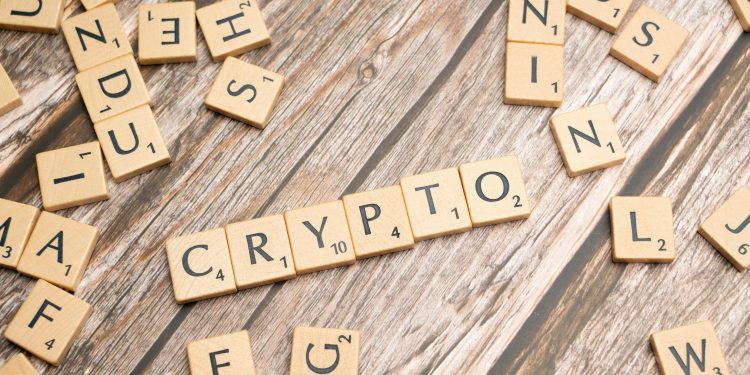The Role of DAOs in the Future of Governance: My Thoughts
Decentralized Autonomous Organizations (DAOs) represent a transformative approach to governance in the digital age. By leveraging blockchain technology, DAOs eliminate the need for traditional hierarchies and centralized authority, replacing them with transparent, democratic, and community-driven systems. The potential of DAOs extends beyond blockchain ecosystems, offering revolutionary possibilities for corporate governance, public administration, and global collaboration.
This article explores the role of DAOs in reshaping governance, their advantages, challenges, and the future they herald for organizations and societies.
Understanding DAOs: What Are They?
A Decentralized Autonomous Organization (DAO) is a blockchain-based entity that operates according to pre-programmed rules encoded in smart contracts. Unlike traditional organizations, DAOs are:
- Decentralized: Decision-making power is distributed among members.
- Autonomous: Smart contracts automatically enforce rules and execute actions.
- Transparent: Every decision and transaction is recorded on the blockchain.
Examples of DAOs include MakerDAO (for decentralized finance governance), ConstitutionDAO (a crowdfunding DAO), and CityDAO (exploring decentralized governance of physical land).
Key Characteristics of DAOs
1. Decentralization
Decision-making power is distributed among stakeholders, ensuring no single entity has undue influence.
2. Token-Based Voting
Members typically hold governance tokens, which grant voting rights proportional to their holdings.
3. Programmable Governance
Smart contracts automate processes like fund allocation, voting outcomes, and member incentives.
4. Transparency
All DAO activities are recorded on the blockchain, fostering accountability.
How DAOs Are Reshaping Governance
1. Democratizing Decision-Making
Traditional governance structures often concentrate power at the top. DAOs enable participatory governance, where every member can voice their opinions and influence decisions.
2. Enhancing Transparency and Trust
Blockchain technology ensures that every decision, transaction, and vote is publicly verifiable, reducing corruption and fostering trust.
3. Streamlining Operations
Smart contracts automate bureaucratic processes, reducing inefficiencies and administrative costs.
4. Global Accessibility
DAOs transcend geographical boundaries, allowing individuals worldwide to collaborate and govern without centralized control.
Use Cases for DAOs in Governance
1. Corporate Governance
DAOs can revolutionize how companies operate by:
- Offering shareholder voting systems that are transparent and tamper-proof.
- Automating dividend payouts based on smart contract rules.
- Encouraging employee participation in decision-making processes.
2. Public Sector Applications
Governments can adopt DAO principles to:
- Increase citizen participation in policymaking through tokenized voting systems.
- Enhance transparency in public spending by recording budgets on the blockchain.
- Decentralize local governance, empowering communities.
3. Nonprofit Organizations
DAOs provide an efficient, transparent framework for managing donations and ensuring funds are allocated as intended.
4. Creative Industries
In sectors like art, music, and entertainment, DAOs enable fair revenue sharing, copyright protection, and collective decision-making among creators and stakeholders.
5. Global Collaboration
DAOs facilitate cross-border cooperation on global challenges like climate change, enabling communities to pool resources and make collective decisions without relying on national governments.
Advantages of DAOs
1. Transparency
Every transaction and decision is recorded on the blockchain, reducing the risk of fraud or corruption.
2. Efficiency
Smart contracts automate routine tasks, eliminating the need for intermediaries and bureaucracy.
3. Inclusivity
DAOs empower marginalized voices by enabling equitable participation in decision-making.
4. Flexibility
DAOs can adapt quickly to changing circumstances, thanks to their modular and decentralized structures.
5. Cost-Effectiveness
By reducing administrative overhead and middleman fees, DAOs allow organizations to allocate more resources to their goals.
Challenges Facing DAOs
1. Legal Uncertainty
The regulatory status of DAOs remains unclear in many jurisdictions, complicating their integration into existing legal frameworks.
2. Security Risks
Smart contracts, while robust, are not immune to bugs or exploits. High-profile hacks, such as the attack on The DAO in 2016, highlight these vulnerabilities.
3. Plutocracy Concerns
Token-based voting can lead to power concentration among wealthier members, undermining the democratic ethos of DAOs.
4. Coordination Challenges
As DAOs grow larger, decision-making can become cumbersome, with conflicting interests among members slowing progress.
5. Adoption Barriers
Many people are unfamiliar with blockchain technology, posing challenges for mass adoption.
Real-World Examples of DAO Success
1. MakerDAO
MakerDAO governs the DAI stablecoin ecosystem, enabling decentralized financial services with minimal intervention.
2. Uniswap DAO
The Uniswap community uses DAO governance to propose and implement changes to its decentralized exchange platform.
3. ConstitutionDAO
Though it ultimately failed to secure a copy of the U.S. Constitution, ConstitutionDAO showcased the power of decentralized crowdfunding.
4. CityDAO
CityDAO is experimenting with decentralized land governance, purchasing parcels of land to test DAO principles in real-world property management.
The Future of DAOs in Governance
1. Blurring the Lines Between Public and Private Governance
DAOs offer a hybrid model where public and private entities can collaborate seamlessly. For example, a DAO could manage city infrastructure while engaging citizens directly in decision-making.
2. Mainstream Adoption
As blockchain technology matures and regulatory clarity improves, DAOs are poised to gain wider acceptance in both corporate and governmental sectors.
3. Technological Integration
The integration of artificial intelligence (AI) and DAOs could create autonomous systems capable of making data-driven governance decisions.
4. Global Governance
DAOs hold the potential to address transnational challenges by creating platforms for global cooperation outside traditional political structures.
My Thoughts on DAOs and Their Potential
The promise of DAOs lies in their ability to decentralize power and increase transparency. They represent a bold experiment in governance, pushing the boundaries of what is possible in organizational management. However, to fully realize their potential, DAOs must address their inherent challenges, particularly around legal recognition, security, and inclusivity.
In my view, DAOs will not entirely replace traditional governance systems but will complement them, providing innovative solutions where existing frameworks fall short. The real power of DAOs lies in their adaptability and ability to empower communities, offering a glimpse into a future where governance is more participatory, efficient, and transparent.
As more people and institutions embrace DAOs, I believe we’ll witness a profound shift in how societies organize and govern themselves—ushering in a new era of collaborative, decentralized governance.


